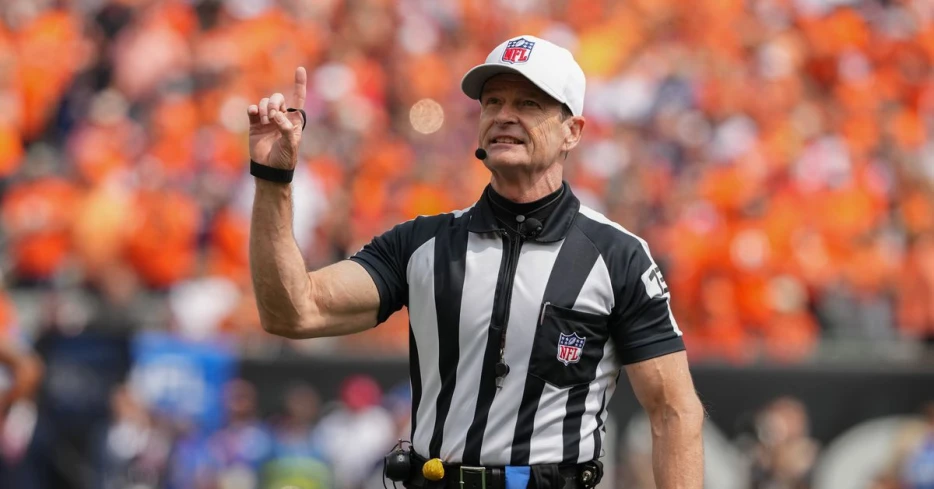
 Mile High Report
Mile High Report
Breaking down great and questionable officiating from Denver’s heartbreaking week 6 loss to the Chargers and dominating week 7 win over the Saints.
A quick note – last week we were unable to review the Broncos Chargers game in full, so as promised there are comments on that game this week, alongside comments from the Broncos Saints game.
Umpire Carl Paganelli called a great delay of game penalty on safety Alohi Gilman late in the Broncos loss to the Chargers. Gilman tackled Javonte Williams and tried to hold him down to slow the play. Any action designed to deliberately slow down the game will be flagged as a delay of game. Most fans are familiar with running the play clock down to zero, but there are other circumstances when this penalty is properly called. When a returner signals fair catch, catches the ball, and then takes off running, delay of game will be called. When a player through deliberate action or (sometimes) negligence makes it significantly harder for the officials to get the ball properly marked delay should be called, or when a player prevents the other team from lining up. This is a rare call, but it was clearly correct. Gilman was trying to delay the game, and he was penalized harshly for it. I appreciated how Paganelli called the foul – it appeared that he got to the players, made two commands, and then flagged Gilman, which is exactly the timing and steps that perfect officiating should do in that situation.
The officials let the defensive backs and wide receivers get a little bit out of hand in the second half, and were more than a bit inconsistent with their calls of defensive pass interference and offensive pass interference. I had the same impression with defensive holding, but remember I do not evaluate defensive holding calls. A good example of the passive and inconsistent officiating came in the third quarter with about 7:25 left. Ja’Quan McMillian committed egregious defensive pass interference, which went uncalled. However, the ball was tipped, so by rule his pass interference would not have counted. If the covering official saw the tip, he was technically correct, but he communicated inconsistency. Better officiating would be to throw that flag and verify the tip before picking it up instead of not throwing it. This communicates to the players what conduct is acceptable and how players should perform, it does not need to delay the game. Being slick as an official was not incorrect there, but it nurtured inconsistencies among the players and within the officiating crew. The deep officials could have avoided more controversy late in the game by being more active and clear earlier in the game, and it was unfortunate to see this happen.
The spotting of the ball was good and consistent. I thought Carl Paganelli was particularly excellent during the...